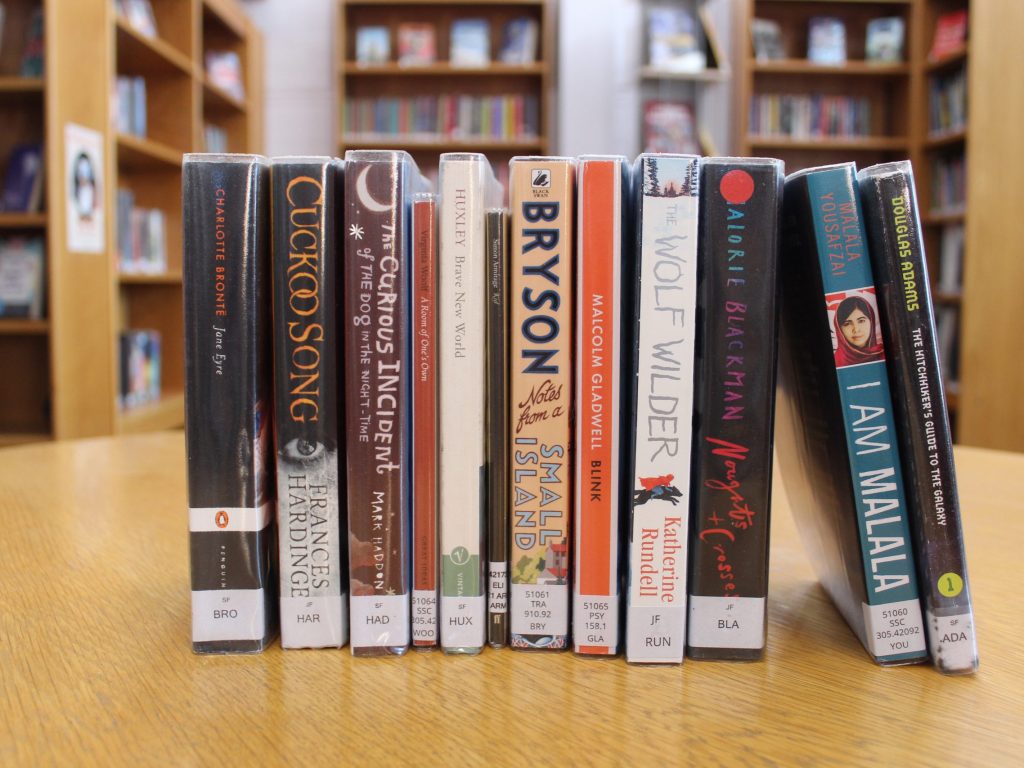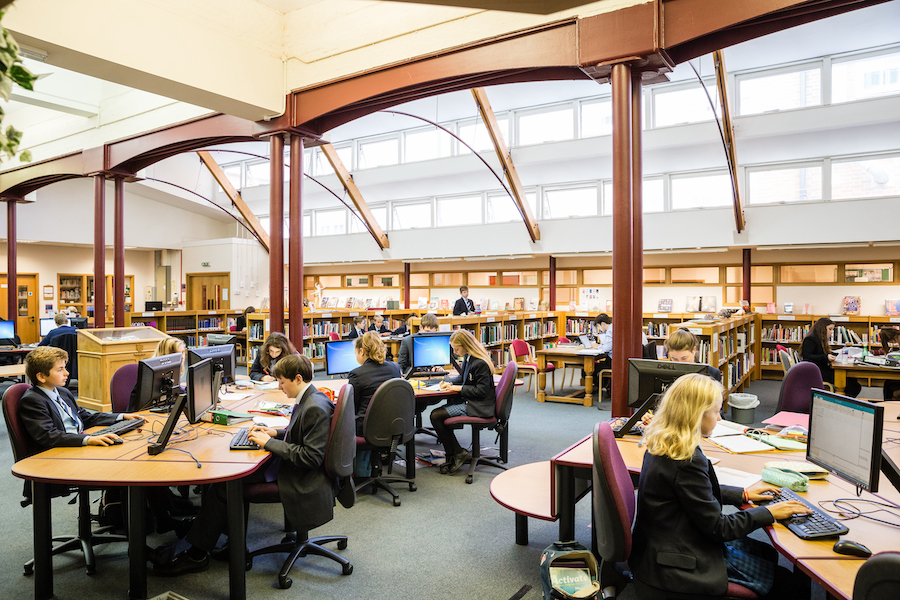Dauntsey’s Dozen are 12 books the School’s English Department would like pupils to have read independently during their time at the School.
The list offers inspiration for those hoping to distract children from their electronic devices over Christmas.
Andrew Brown, Head of English at Dauntsey’s, said:
“It has been a very difficult challenge for the Department to select just twelve books but we wanted to encourage pupils to keep a book by their bed and develop the habit of reading on a regular basis. There is a mix of fiction and non-fiction and even a collection of poetry. We have tried to select books that have been around for a little while and still stand up to scrutiny.
“The idea is to read them in order, with number one being a good book to read in the First Form; number 12, pretty essential for a Sixth Former. However, we feel that they are suitable for all ages.”
Dauntsey’s Dozen is as follows:
Book 1. The Wolfe Wilder by Katherine Rundell. Rundell is a very exciting writer. Her novels are beautifully written, ambitious, often magical and loved by her readers. She is an excellent journalist too, with an outstanding on-line archive of reviews and nature writing. This novel is set in Russia and a wolf wilder is the opposite of a wolf tamer. It develops from there.
Book 2. Cuckoo Song by Frances Hardinge. This is a few years old now and Hardinge has written some amazing novels since. This is a weird tale, set in 1920s England, full of references to early jazz music and cinema but, most importantly, it’s about a little girl whose doll starts to talk to her.
Book 3. Noughts and Crosses by Malorie Blackman. We haven’t yet met anyone who did not love this novel. It deals with more adult themes of racism and teenage self-harm but opens discussion of those themes in a sensitive and provocative style. Blackman has received an OBE for services to children’s literature and was for a while the Children’s Laureate.
Book 4. Notes from a Small Island by Bill Bryson. This is the sort of book that makes people laugh out loud while reading on the train. Bill Bryson is American and lived in Britain for many years. This is the book he wrote about Great Britain as he found it in the 1990s. Not much has changed really.
Book 5. I Am Malala: The Story of the Girl who stood up for Education and was shot by the Taliban by Malala Yousafzai. Malala’s story is well-known: shot by people who were opposed to the idea of girls attending school, she recovered and went on to not only return to school but to become a campaigner for education throughout the world. This memoir discusses questions of identity and nationality and is a great way to start thinking about some of the world’s more complex questions.
Book 6. The Curious Incident of the Dog in the Night-Time by Mark Haddon. The narrator of this detective novel, Christopher, is autistic. He doesn’t see the world as most others do. The events of the novel take him out of his comfort zone and challenge him in unexpected ways. It’s a pacy, original story, with some really engaging characters.
Book 7. KID by Simon Armitage. Armitage is the current Poet Laureate. This is one of his earliest collections and, we think, his most successful. Reading a poetry collection is quite an unusual thing to do but can be hugely rewarding. Keep this by your bed and read the odd poem every now and again.
Book 8. Jane Eyre by Charlotte Brontë. The only real ‘classic’ on our list. Austen, Dickens and Hardy all have their place, but this is the one that we managed to agree that we had all enjoyed as teenagers ourselves, or at least that we knew plenty of teenagers who had loved it.
Book 9. BLINK by Malcolm Gladwell. The market in pop psychology or self-help books is enormous. Esquire magazine says that this book “might just change your life”. Our English Department believes that any book might just change your life, but this exploration of intuition and instinct, delivered in Gladwell’s compelling and engaging style, is as good a place to start as any.
Book 10. The Hitchhiker’s Guide to the Galaxy by Douglas Adams. This has never been bettered as a piece of comic English writing. The story of Arthur Dent, who is rescued from Earth as it is destroyed to make way for a hyperspatial express route, is told with a measure of insanity and weirdness that has made this collection of novels one of the most popular to have ever been written. Don’t panic!
Book 11. Brave New World by Aldous Huxley. This is one of the very first novels in the dystopian genre that has taken over publishing in the last few years. Originally written in 1932, it still feels relevant today, exploring how control over reproduction and the use of psychological manipulation techniques create a terrifyingly ‘perfect’ society.
Book 12. A Room of One’s Own by Virginia Woolf. This is an extended essay about the role of women in the world. Woolf writes about women’s need for financial independence as well as the need for a room of their own in which to write. Her argument expands to explore women’s education and their roles in history and literature. Sixth formers trying to find an essay-style can learn a lot from here.
For further information about Dauntsey’s School, please go to www.dauntseys.org or follow us on Twitter at Dauntsey’s@DauntseysSchool



